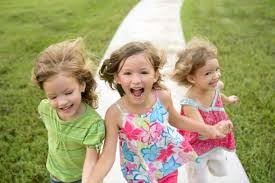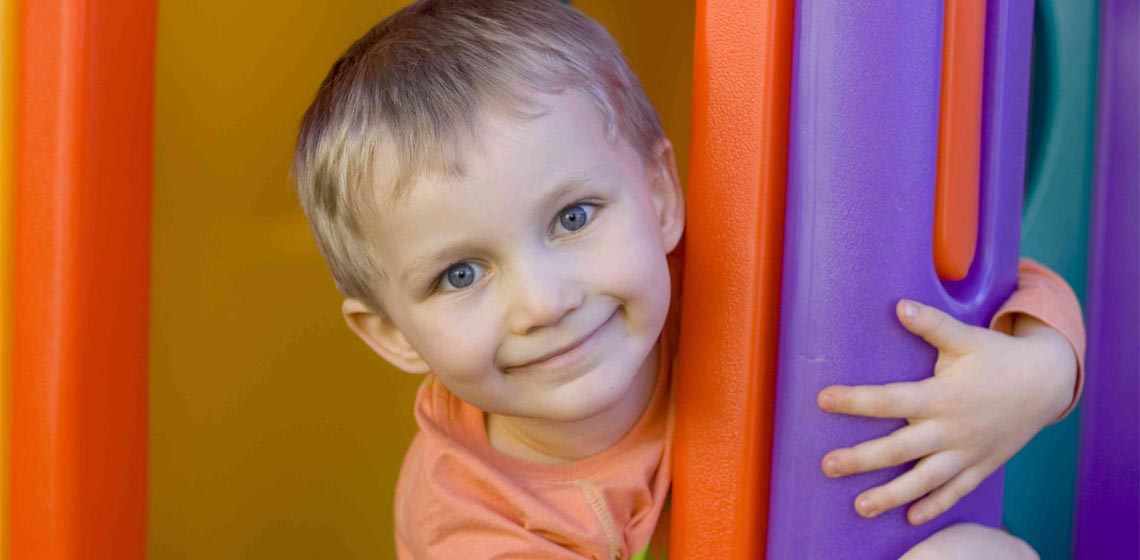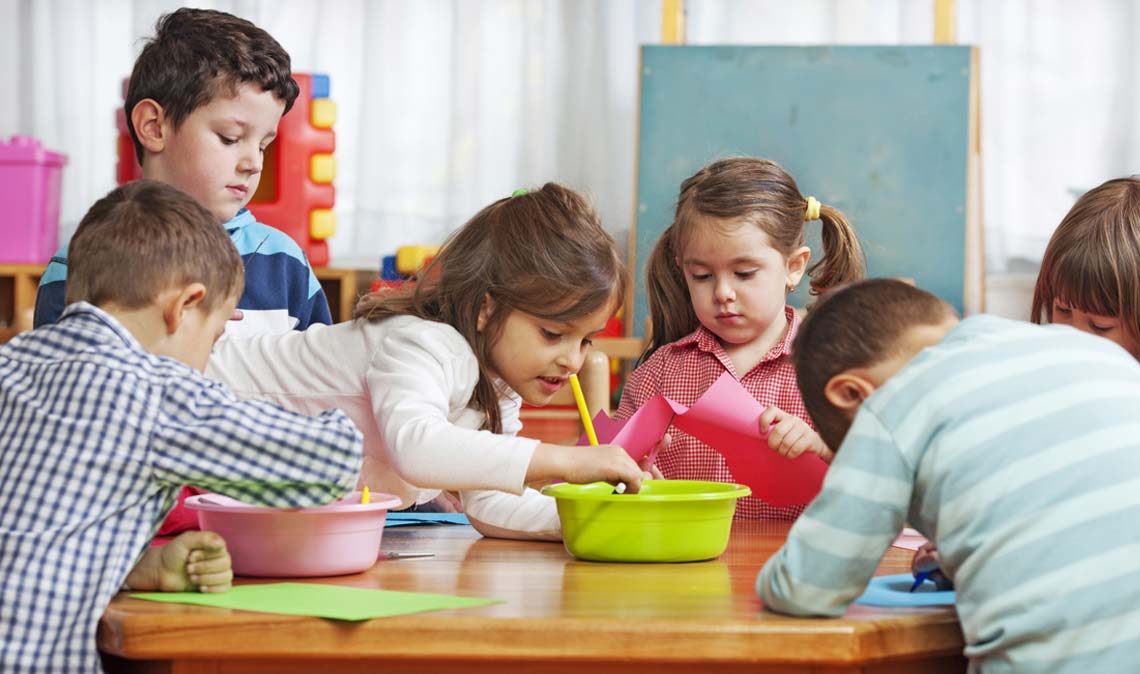At Edison Public Schools, we know that education doesn’t solely happen in the classroom. Through travel and experience, we can all learn more about the world around us. We just have to go into our adventures with open minds and open eyes. Students under Edison Public Schools have a unique perspective on the world because of our unique emphasis on different educational methodology. While we still make use of traditional education tactics, we also want our students to think more critically about the world around them. And it is not just our students who learn the most through exploration and adventure – we all do.
Home Field Trip Ideas to Further Nurture Your Child’s Education
It might sound cliché, but it is true: education doesn’t only take place in the classroom. The world outside of those four walls is rife with opportunities to expand one’s mind, increase their knowledge, and provide applicable examples for what they’ve learned. There’s nothing quite like a hands-on approach to learning, which can take place anywhere, any time.
Every excursion into the world can prove itself an educational adventure for a child. In this article, we’ll show you 13 great examples of such outings. And there is no classroom involved!
13 Out-of-Classroom Opportunities for Learning
Of course, the extent of this list is nowhere near complete. You may have ideas of your own to add to this list – which you definitely should! For now, you can use this list as something of a starting point when planning your own activities.
Visit a Historical Site
 This is one example that you can use to weave the experience into your child’s current history curriculum, to keep things relevant. If the site is in your own town (or even just nearby), your child will also get a healthy dose of local history schooling. In your search for local historical sites, you may even learn a thing or two!
This is one example that you can use to weave the experience into your child’s current history curriculum, to keep things relevant. If the site is in your own town (or even just nearby), your child will also get a healthy dose of local history schooling. In your search for local historical sites, you may even learn a thing or two!
Check out a History Museum
Museums are a terrific way to enjoy the day and learn some cool, new information. History is a critical subject that students should immerse themselves in and soak up every opportunity to learn more. The history of the world, the country, or even just your city is likely more interesting than even you know! This gives everyone – you and your children – an exciting chance to increase their wealth of historical knowledge.
Tour the State Capital
Learning about how the government works at all levels – including state level – is an incredible learning opportunity for young and old students of life. Most of these government agencies will allow for guided tours on certain days, which gives everyone a more comprehensive glimpse into their state’s government’s workings.
Take a Trip to the Science Museum
Science museums are great places to take children! Many offer child-inclusive and even hands-on activities. Engaging with the displays as a part of learning is especially fascinating to children, even the big kids. Not only do they get to learn a bit more about how the world works, but they get to see some of it in action!
Learn About Farming
Farms are the lifeblood of any country. They make it possible to have food on our plates. Your child could definitely learn a lot by paying a visit to a local farm. They’ll enjoy learning more about the process that goes into the food we consume daily. Many bigger farms will even have designated dates and times for guided touring!
Stargaze at the Planetarium
Not everything that should be learned sits right here on Earth. Turn your sights to the stars at a local planetarium, where you will learn all about planets, stars, constellations, and other formations throughout the galaxy.
Go to the Zoo
Zoos are an incredibly popular family attraction for a multitude of reasons. You get to see animals that you’d likely never have the chance to witness elsewhere. You get to learn about creatures domestic and exotic. Visitors can take a trip through all continents in a single day. For these reasons and more, the nearest zoo should definitely be on your list of places to visit.
Visit the Aquarium
If you’ve got an aquarium – or even better yet, a place like SeaWorld – near you, it is simply essential that you pay it a visit! Many aquariums will offer discounted admissions on certain days, making this family adventure ultra-affordable (as well as educational). A trip to see underwater life is a relaxing way to learn something new and fun.
See a Play
Go to a local theater to enrich your students’ lives with something deeply cultural and entertaining. This doesn’t mean that you have to view a Broadway-worthy production, either. Most theaters are staffed by incredible amateur performers. This makes the tickets more affordable and the venue less crowded. Local theaters are the way to go, a lot of the time.
Picnic in a Garden
Going to the garden is a free (or cheap, depending on the location) way to immerse yourself in nature and learn while relaxing the body and mind. Being surrounded by nature helps to make humans happier. And a happy person is always going to be more susceptible to engaging in their experiences fully. Use this time to have a picnic lunch, identify some flora and/or fauna, and bond as a family.
Go on a Hike
Physical education is a part of overall education, so it’s important to remember to visit places that nurture the body as well as the mind. Hiking along a nature trail is a great way to do this. You can choose hiking spots that are suited to everyone’s fitness level and endurance. And there’s so much to see along the way! Work together to identify birds and different types of plant life while you perform some cardio.
Learn to Garden
A local green house or public garden is a great place to learn more about gardening. Your child may already know the basics: plant the seed, nurture with water and sunlight. But here, they can learn how to most efficiently and healthily grow their own herbs, flowers and produce. They’ll learn more about the properties of everything they grow, including the soil these things sprout from.
Shop for Groceries
It’s a good idea to give children a chance to learn about budgeting early on, as this is a valuable skill that will serve them well throughout their lives. Go into the supermarket with a budget in mind and a list. Proceed to walk the student through the process of shopping for groceries, including the ending transaction with the cashier.
Understanding the Pros and Cons of Preschool
For millions of families, preschool is the first step toward formal education in a child’s life. When your child is approaching this age, you might consider this option for your own family. There are many reasons why you should carefully think about this. Preschool comes with its own sets of benefits and drawbacks. In this article we will explore the pros and cons of having your young child attend preschool. You’re setting the stage for your child’s future in education at this point, and we know you want to get it right.
The Pros of Preschool
Parents send their young children to preschool for many reasons, some of which you may not even find on this list. If you’re considering sending your young one to preschool, here are some of the benefits you can look forward to seeing in your child’s ongoing development.
Structure
Yes, your home probably has some type of structure that helps you navigate your day-to-day lives. But a classroom environment is an entirely different matter. Schools, including preschools, generally go by a fairly rigid schedule to make sure that everything is accomplished as planned each day. Attending preschool allows the child to get acquainted with a new type of structure in their lives before being introduced to the world of all-day kindergarten.
Social Development
 There’s a very good chance that your child attending preschool will be their first time spending a lot of their time around a bunch of their peers. This can, and likely will, lead to some awkward moments with other children. It happens, and it’s a part of growing socially. Young students will learn more about the finesse that is social interaction, including how to play nicely, share communal items, and communicate using their words.
There’s a very good chance that your child attending preschool will be their first time spending a lot of their time around a bunch of their peers. This can, and likely will, lead to some awkward moments with other children. It happens, and it’s a part of growing socially. Young students will learn more about the finesse that is social interaction, including how to play nicely, share communal items, and communicate using their words.
Education
Of course, the primary function of any school is to educate the youth. Preschool is no exception, even if at first glance it looks like toddler-fueled chaos. Many preschools are staffed by educators who are knowledgeable of childhood education. They know what it takes to reach even these young children and help them to retain knowledge that they will use in the upcoming years.
These educators can also spot areas where the child has difficulty learning. They will work alongside the parents and the student to help them conquer whatever hurdles are making their preschool education (and perhaps even their later education) more difficult.
Responsibility
As you might already know from having your child at home, preschool-aged kids love to help out! In the structured environment of a preschool, they will learn how to help themselves and others to get things done. A preschool teacher might give students little “classroom jobs” to perform, for example. This teaches not only responsibility, but also problem-solving. It is never too early for children to become acquainted with these concepts.
Language Skills
School provides an environment that is rich in language, which helps a student’s budding vocabulary to flourish. Children of preschool age are starting to develop quite an arsenal of words, with sentences becoming more complex as they approach the age of 5. Engaging verbally with other students and their educators helps a child’s language skills to grow and strengthen. This makes them more confident in their speech, as well.
Motor Skills
Children in preschool are on the move much of the day. They’re frequently exposed to new things within this environment, which helps to improve their motor skills without it feeling like a big deal. They will run, climb, and experience many hands-on activities that do this for them. And they do it all under the watchful eye of an educator who will ensure their safety and well-being at the same time.
The Cons of Preschool
Just as it goes with anything else, preschool has its own set of drawbacks. We’ll explore what these are below. How big an issue these perceived “cons” can be will depend entirely on your preference and why you’d want to send your child to preschool.
Lack of One-on-One Time
Many parents believe that the best approach to educating a child before the primary school years is to do so on a one-on-one basis. They may choose to educate their child themselves or hire a tutor of sorts to spend one-on-one time educating the child. Preschool doesn’t offer as much of this individualized time, which some parents consider problematic.
Pressure
Another concern commonly expressed by parents of preschoolers is the worry that their child might feel too pressured, too soon, in regard to their education – which will be ongoing for the next 12 years, at least. How true this is depends on a lot of factors, so it is up to the parents to decide what is the best fit for their child.
Separation from Parents
It can feel like a big deal – for both parents and their young children – to be separated at such an early point in the child’s development. Even just a few hours during the school week can be enough to bring separation anxiety into a family’s life, which is tough to deal with.
Learning through experience and travel
There are many different ways to learn something, but we over here believe life itself is the best teacher. When we go travel, visit places, take tours and immerse our selves into the environment, nature, and the culture, there is no other substitute for it. Come join the movement of real public school. Living life and learning out in the public with purpose, not just going through the daily rituals. Live life to the fullest. Experience life not just go through it.
Are you interested in enrolling your child into a school district that emphasizes a more worldly and well-rounded approach to education? Edison Public Schools is the place to enroll! We firmly believe that everyone stands to benefit from education that takes place outside of the classroom – in the real world. Reach out to us today to learn more about Edison Public Schools!



